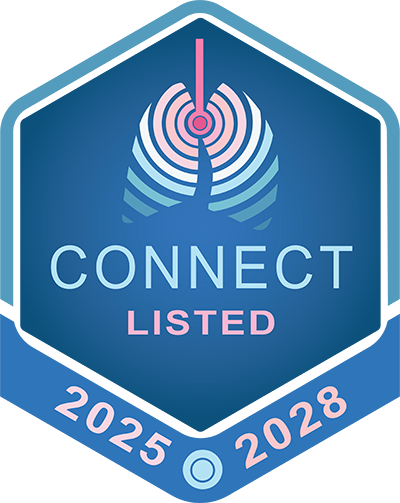- 18 March 2025
Airbridge: a digital health platform to support hybrid health-care in chronic lung disease

Type
Short description
About: Airbridge (Luchtbrug) is a digital health platform to support ‘hybrid healthcare’ for patients with lung disease (e.g. Asthma, Cystic Fibrosis, COPD, etc…). Luchtbrug aims at combining innovative home monitoring with indivualised treatment plans, tailored information & education, and advice. Luchtbrug has been proven feasible, safe, effective and cost-effective and is currently in use in 25 hospitals in The Netherlands. Currently available home monitoring tools include: Asthma Control Test (ACT & children’s-ACT), Chronic Allergic Rhinitis and Asthma Test (CARAT & CARAT-kids), modified Fuchs Criteria (CF symptom score), CF-Quality of Life (CFQ-R), Home spirometry (MIR Spirobank smart), Smartinhalers (Findair). Home monitoring aids provide realtime – automated – feedback to the patient, and to their involved health care professionals.
Development: Airbridge was developed by Radboud University Medical Center with financial support from The Dutch Lung Foundation and The Dutch Healthcare Insurer’s Innovation Fund. It further received support from the Dutch Cystic Fibrosis Foundation. During development patient representatives were involved and are continuously involved in improvements and adaptations.
Intended use: the target population of Airbridge currently exists of children (6-18years) with asthma, children and adults with Cystic Fibrosis (CF), and children with inhalation allergy. Hybrid healthcare for pre-school chuildren with recurrent wheeze and young children with food-allergy is currently being developed (research).
Use of Airbridge (hospital):
the use of Airbridge to support hybrid healthcare is limited to hospitals that decide to implement the software in regular care. A user agreement is signed as well as a data processing agreement. Local implementation and training is supported by the Airbridge team. Each hospital will have access to a testing environment where they can familiarize themselves with the software before it is put into use. Training materials (user manuals for healthcare-providers and patients) are available. Airbridge is a non-commercial software platform developed by healthcare professionals and patients and aims to offer best-in-market online support for their target population.
Use of Airbridge (patient-level):
Within a hospital, the team of healthcare professionals will discuss the use of Airbridge on a case-by-case/patient-level basis, reflecting shared-decision making of the healthcare process for individual patients. Once agreed on the use of Airbridge in regular care, the available functionality is tailored to the wishes and needs of the individual patient (i.e. what functionality is used, in what frequency, etc…).
Privacy: Airbridge is CE-marked as class I medical device under the Medical Device Directive (EC/MDD), with the CE-mark present on the website. CE-certification as class 2a medical device under the Medical Device Regulation (EC/MDR) has been initiated. The platform fully complies to the General Data Protection Regulation (GDPR). This is described in the privacy statement, available on the website. All collected data are (only) available for participating hospitals. Airbridge supports scientific research with an integrated research infrastructure, including digital informed consent.
Business model: Airbridge is a non-profit, non-commercial digital health platform that seeks for partnerships throughout Europe to offer digital healthcare for a variety of (chronic) diseases. Once developed, functionality is available for all partners. Although currently focused on lung-disease, Airbridge is open for partnerships outside the lung-disease area.
Evidence
Maturity
Countries
Geographical scope
Language(s)
Comment
Submitted in other database or repository of digital health resources that is publicly available
Additional information
Relations
to clinicians / care practitioners
Health data analytics (Artificial Intelligence/algorithm development and calibration/machine learning/risk stratification tools/etc.)
Care pathway tracking and adherence
Clinical team care planning and collaboration tools (e.g. digital shared care plan)
Alerting systems for abnormal test results
Escalation systems tracking home monitoring data streams
to patients / citizens
Sensors/wearable devices
Telehealth and telemedicine
Personalised prevention apps
Health promotion and wellness apps and wearables/virtual coaches
Digital tools to support health education (health literacy)/digital health literacy
Reminders/alerts
Digital tools to support patient feedback and reporting of outcomes and experiences
Self-management/ICT supporting adherence to medication and care-plans